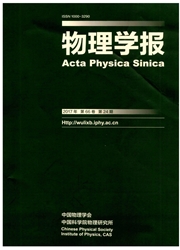

 中文摘要:
中文摘要:
目前有关非平稳复杂系统及其在预测中的应用研究是一个较少被人理解并有重大科学意义的前瞻性研究课题.在大气运动中,气候正是一个典型的非平稳系统,但是现有的气候预测理论,包括统计预测理论和非线性预测理论,几乎都无一例外地建立在平稳性假定的基础之上,这有悖于气候过程的基本性质,它有可能是导致气候预测水平低下的重要的理论原因.因此以分析如何降低时间序列非平稳程度作为切入点来研究短期气候预测问题有着重要的理论意义.利用基于“升维”思想的支持向量机方法对时变控制参数条件下Lorenz系统产生的非平稳时间序列以及来自实际气候系统的非平稳时间序列进行预测试验研究.结果表明,基于统计学习理论的支持向量机方法对于非平稳过程存在稳定的预测能力.由于该方法可以通过核函数实现从样本空间到高维特征空间的非线性映射,这样可以理解为通过非线性映射,将低维空间中的非平稳过程映射到高维空间,通过“升维”在一定程度上降低了系统的非平稳程度.
 英文摘要:
英文摘要:
The nonstationary behaviors of complex system and their applications to the climate prediction present a significant and forward-looking study. Up to now, its importance is not yet well understood. In reality, climate is just a normal nonstationary system. However, almost all the current theories for climate prediction, including the ones in statistics and nonlinear science, are based on one assumption that the process is stationary which is contrary to the nature of the climate process. Probably, this contradictory is an important cause resulting in the climate prediction being at a low reliability level. Therefore, it is theoretically important in climate prediction to start with how to reduce the nonstationary degree of time series. In this paper, support vector machine (SVM) method based on an idea of dimension raising is presented to study the time series prediction analysis, and prediction experiments are performed using some nonstationary time series from the Lorenz model and logistic system with changing control parameter, as well as two realistic climatic time series. The prediction results suggest that the SVM method can perform well in predicting nonstationary time series, which may be due to that the SVM method can map the input space into a higher dimensional feature space through nonlinear mapping and can reduce to some extent the nonstationary degree of the system.
 同期刊论文项目
同期刊论文项目
 同项目期刊论文
同项目期刊论文
 Estimating the clustering coefficient in scale-free networks on lattices with local spatial correlat
Estimating the clustering coefficient in scale-free networks on lattices with local spatial correlat 期刊信息
期刊信息
